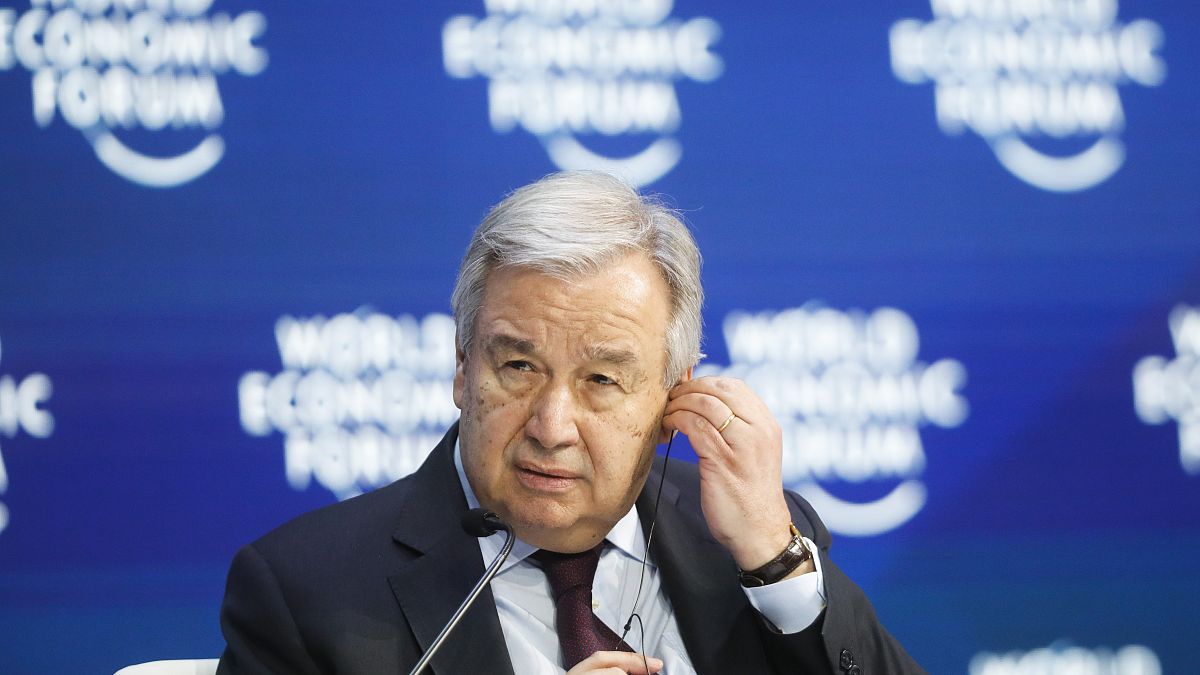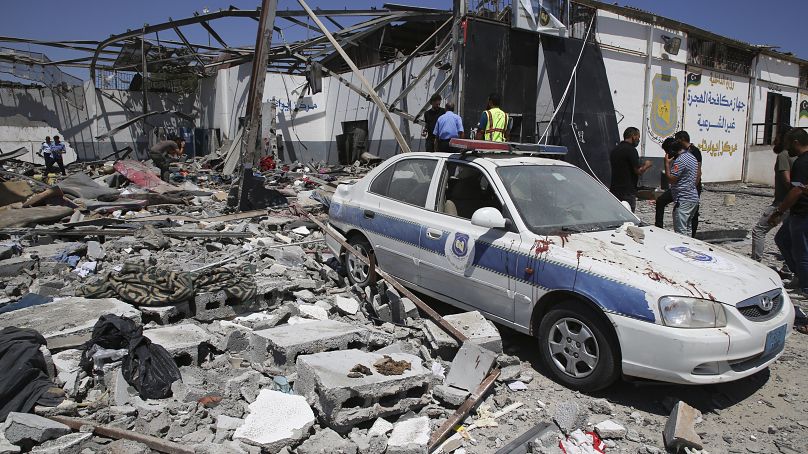Guterres said conflicts in Libya, Yemen and Syria were escalating as gains made in 2019 are reversed in 2020.
U.N. Secretary-General António Guterres has said that the flow of weapons to war zones in Libya, Syria and Yemen in direct contravention of arms embargoes has contributed to what he called a “wind of madness [that] is sweeping the globe".
Speaking to journalists in New York, Guterres singled out the arming of rival militias in Libya as key to a “vicious circle” that was undermining peace and security worldwide, although he stopped short of naming the countries involved in the current proxy conflict in North Africa.
Guterres said that Security Council solutions on Libya - where a civil war is being fought between Prime Minister Fayez al-Sarraj, who heads the UN-recognised government in Tripoli, and General Khalifa Haftar - “were being disrespected even before the ink is dry”.
“I must say I'm deeply frustrated with what's happening in Libya, and I think that what's happening is a scandal,” he said. “We still see planes coming, both to Misrata and to Benghazi. We haven't seen any relevant stop in the disrespect of the arms embargo.”
His comments come just weeks after a summit in Berlin brought together Haftar and al-Sarraj in an effort to end the conflict, the latest phase of which began ten months ago when Haftar’s forces - backed militarily by France, Saudi Arabia and the UAE - attempted to take the capital, Tripoli. Sarraj, meanwhile, has the backing of the UN, Turkey and Qatar.
Read more: What is happening in Libya?
Asked a number of times to name-and-shame the countries defying a 2011 UN arms embargo - Gutteres said: “We had a number of countries coming together in Berlin [that] committed not to send weapons or to participate on anyway in the fighting. Now, the truth is that the Security Council embargo remains violated.”
More generally, Gutteres highlighted the ongoing conflicts in Syria and Yemen as further evidence that progress made on diplomacy at the end of 2019 had been reversed in 2020.
Asked about the recent Israeli-Palestinian peace plan published by U.S. President Donald Trump - which was greeted with widespread shock and derision, not least by the Palestinians - Gutteres said the U.N’s position on the peace process remained the same.
“We are totally committed to the two‑state solution [...] based on international law, based on Security Council and General Assembly resolutions and based on the borders of '67,” he said. “So, it is very clear what we believe in. [...] We have not changed our position.”
The 1967 borders between Israel and a future Palestinian state would require the Israelis to withdraw from the West Bank and East Jerusalem, something even mainstream Israeli politicians have outright refused to do.
Turning to the threat of climate change, Guterres said: "Another clear vicious circle is exacerbating the climate crisis.
"As oceans warm, ice melts, and we lose the vital service the ice sheets perform - reflecting sunlight, thus further increasing ocean warming.
"And as ice melts and the oceans warm, sea levels rise and more water evaporates, fuelling ever greater rainfall, threatening coastal cities and deltas."

